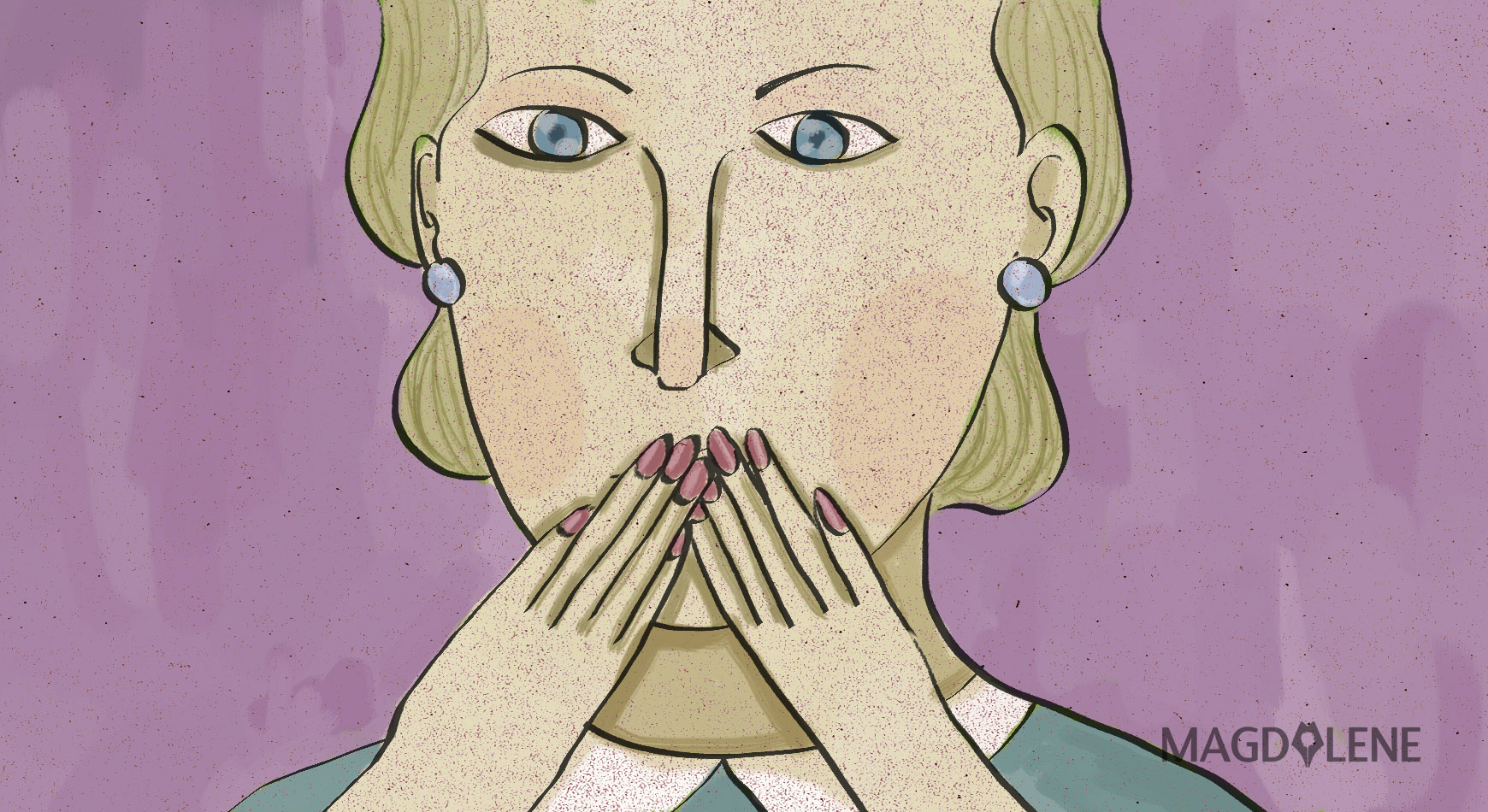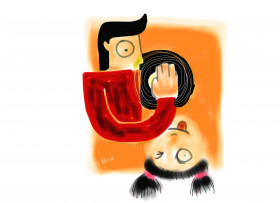I believe that gender constantly reproduces norms that are closely related to peer-grouping manuals. Masculinity will motivate boys to befriend other masculine boys, as femininity to girls. This happens as a social mechanism for finding a group of people to fit in to and to which we belong – people who make us feel safe, with whom we share similar interests, eventually leading to the normalizing of what is “usual”.
This mechanism works effectively in the socialization of sex-based identification, where female is identified as feminine and male as masculine. However, that does not work so effectively to people like me – people who may not prefer to be identified automatically as what is considered “usual” or biological, who do not champion standardized gender/sex relations, who are born feminine male and homosexual.
I mostly feel that I belong to feminine peers who are mostly women. Femininity has grouped me in feminine discourses around which my life has been constructed: fashion preferences, social register, characterizations, likeliness and perspectives in seeing things. All these came from talking with the same paradigmatic groups, groups of women in general.
In contrast, I always find it awkward when I am invited to join masculine talks with boys, feeling ignorant of the subject and incompetent to respond. On the one hand, I realize the emptiness of my enthusiasm, but on the other hand, I have always been afraid of thoroughly coming out. I still am not okay to be publicly open about myself, even though I already admitted who I really am.
Still, to confess means to put me in a mental state of great contemplation, as I consider what’s okay and what’s not. While thinking, I often undergo a painful self-breakdown. I can’t bear the thoughts of rejections, especially from male. I am afraid that they will consider me a traitor who betrays their masculinity. I don’t want their mockery, discriminations, or judgment (but who on earth does?). So silence saves me, at least momentarily.
But something has changed my perspective and given me a sense of positivity. Recently, I went to an event organized by a students’ association I was formerly a part of. I was invited as a volunteer adjudicator and I decided to go since I longed to meet people I’d missed. In the event I met a lot of my friends as they were in the middle of a meeting.
We were all gathering to greet each other and had a little chat, notwithstanding our usual gender groupings. Then I began to observe a natural change occurring: the masculine males started to slowly withdraw from the bigger crowd, leaving the feminine to their own communication sphere. The seats were unconsciously rearranged and the peers were reset. What I saw then was a genuine example of peer socialization – my friends were busy gendering themselves. I had argued that they did it out of negative intent, but what I came to realize then that it was done naturally as a search for a place to belong.
My masculine friends’ withdrawal did not leave me feeling alienated. Instead, I felt appreciated by this freedom. The distance they created was not based on a discriminatory intent. It was rather an evidence of understanding. They respected me for who I am beyond my body; they did not polarize heteronormative automaticity of governing and owning me as a member of their masculine tribe just because I am male. They knew that I did not fit into their discourse, hence they left me be with my feminine peers.
On top of it, what they did made me comfortable about being true to myself, without having to speak myself out and be in stressful contemplations. My friends were not evil. They did not confront me with polarizing questions to seek out the truth regarding my gender. They did not require me to verbalize my feelings regarding my gender crossing and sexuality. Instead they respectfully interpreted my silence. I did not have to describe myself, which I always dread, fearing objection.
I consider the experience an embodiment of tolerance.
This, for me, indicates a start of acceptance for differences. The tolerance is diffused in silence, but the silence matters a lot. This silence bespeaks great freedom in which I can still be who I am without desperately narrating myself out. In this silence, I observe the “me” people perceive more carefully, taking me away from the disadvantages of coming out to “wrong people”.
The silence allows me to selectively choose to whom I may later open up myself. It also lets me obtain encouragement from the masculine male, to seek out whether they somehow understand who I may really be, just like how my feminine peers silently understand me. More importantly, they know that I appreciate their gesture in return, as I don’t have to pretend anything.
What is interesting is the fact that I may not have completely allowed people the truth about who I truly am, but somehow I feel they treat me based on what they deem truthful to them: not my genital nor the hair on my chin, but my ways of thinking, my expressions, my interest, all that is beyond the body. People begin to see through the body I am trapped in.
In silence, I understand that people at least begin to see my gender as the truth of myself instead of only the sex. This sheds a new horizon of hope that there lies tolerance, even in the most latent ways.
Tubagus Septian was born on Sept. 10, 1992 in Bogor. He is currently a postgraduate student of education studies in Monash University, Australia. He is very fond of philosophies and contemporary literature.








Comments